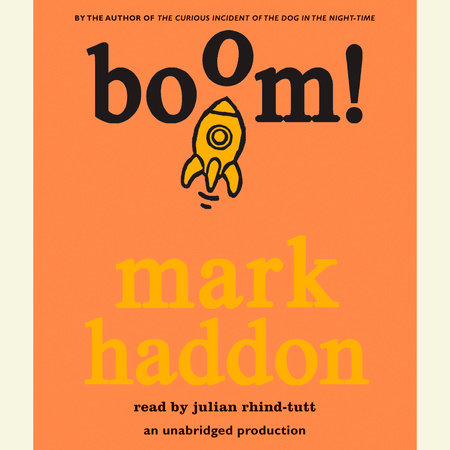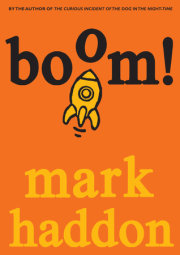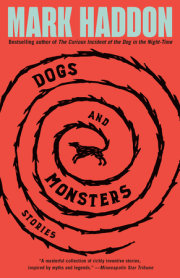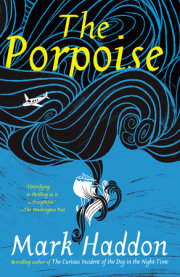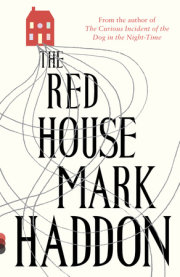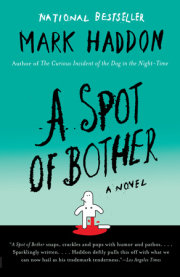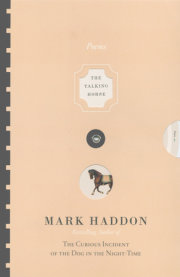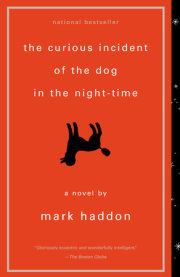I was on the balcony eating a sandwich. Red Leicester and gooseberry jam. I took a mouthful and chewed. It was good but not a patch on strawberry jam and Cheddar. That was my best yet.
I spent a lot of time on the balcony. The flat was tiny. Sometimes it felt like living in a submarine. But the balcony was amazing. The wind. The sky. The light. You could see the 747s circling slowly in the stack, waiting for a space on the runway at Heathrow. You could watch police cars weaving their way through the tiny streets like toys, their sirens whooping.
You could see the park too. And on this particular morning you could see, in the middle of the huge expanse of grass, a solitary man holding a metal box in his hands. Buzzing high above his head you could just make out a model helicopter, banking and swerving like a dragonfly.
Dad has always been crazy about models. Trains, planes, tanks, vintage cars. But after he lost his job at the car factory it became the biggest thing in his life. To be fair, he was brilliant. Give him a brick and a rubber band and he’d have it looping the loop before you could say, ‘Chocks away!’ But it didn’t seem right somehow. It was a hobby for little boys and weird blokes who still lived with their mums.
A flock of pigeons clattered past and I heard the sound of a familiar motorbike engine. I looked down and saw Craterface’s large black Moto Guzzi turn into the estate car park. My darling sister, Becky, was on the seat behind him, a grimy leather jacket over her school uniform.
She was sixteen. I could remember the time, only a couple of years back, when she tied her hair in bunches and had pony posters on her bedroom wall. Then something went badly wrong in her brain. She started listening to death metal and stopped washing her armpits.
She met Craterface at a gig six months ago. He was nineteen. He had long greasy hair and enormous sideburns with bits of breakfast stuck in them. When he was younger he had spots. They’d gone now, but they’d left these holes behind. Hence the nickname. His face looked like the surface of the moon.
He had the brain of a toilet brush. Mum, Dad and I were in complete agreement about this. Becky, however, thought he was God’s Gift to Women. Why she fancied him, I haven’t a clue. Perhaps he was the only person who could stand her armpits.
The bike rumbled to a halt ten storeys below and I experienced a moment of utter madness. Without thinking, I peeled off half my sandwich, leaned out and let go. I realized almost immediately that I had done a very, very stupid thing. If it hit them I would be murdered.
The slice wobbled and flipped and veered left and veered right. Craterface turned off the engine, got off the bike, removed his helmet and looked up towards the flat. I felt sick.
The slice hit him in the face and stuck, jammy side down. For a couple of seconds Craterface just stood there, absolutely motionless, the slice of bread sitting there like a face pack. Becky was standing beside him, looking up at me. She was not a happy bunny.
Now, normally you can’t hear much from the balcony, on account of the traffic. But when Craterface tore the sandwich off and roared, I think they probably heard him in Japan.
He stormed towards the doors but Becky grabbed his wrist and dragged him to a halt. She wasn’t worried about me. She’d have quite liked him to kill me. Just not in the flat. Because that would get her into trouble.
Craterface finally saw sense. He waved his fist and shouted, ‘You’re dead, scum!’ climbed onto the Moto Guzzi and thundered away in a gust of dirty grey fumes.
Becky turned and strode towards the door. I looked down at the rest of my sandwich and realized that I no longer felt very hungry. There was no one in the car park now so I dropped this half too, and watched it wobble and flip and veer and land neatly beside the first slice.
At which point the balcony door was kicked open. I said, ‘It was an accident,’ but Becky screamed, ‘You little toad!’ and hit me really hard on the side of the head, which hurt quite a lot.
For a couple of seconds everything went double. I could see two Beckys and two balconies and two rubber plants. I didn’t cry, because if I cried Becky would call me a baby, which was worse than being hit. So I hung onto the rail until the pain died down and there was only one Becky again.
‘What did you do that for?’ I asked. ‘It didn’t land on you. It landed on Craterface.’
She narrowed her eyes. ‘You are so lucky he didn’t come up here and hit you himself.’
She was right, really. Craterface had a black belt in kung fu. He could kill people with his ears.
‘And another thing,’ she hissed. ‘His name is Terry.’
‘Actually, I’ve heard his name is Florian. He just pretends to be called Terry.’ I stepped backwards to avoid the second punch but it never came. Instead, Becky went very quiet, leaned against the railing and nodded slowly. ‘That reminds me,’ she said, in a sinisterly pleasant way. ‘There’s something I’ve been meaning to tell you.’
‘What?’
‘Amy and I were in the staff room the other day, talking to Mrs Cottingham.’ Becky took a packet of cigarettes from the pocket of her leather jacket and lit one very slowly, as if she were in a black and white film.
‘Smoking’s bad for you,’ I said.
‘Shut your ugly mouth and listen.’ She sucked in a lungful of smoke. ‘We overheard Mr Kidd talking about you.’
‘What was he saying?’
‘Bad things, Jimbo. Bad things.’ This had to be a wind-up. But she wasn’t smiling. And it didn’t sound like a wind-up.
‘What bad things?’ I pulled nervously at the rubber plant and one of the leaves came off in my hand.
‘That you’re lazy. That you’re a nuisance.’
‘You’re lying.’ I slid the leaf of the rubber plant down the back of the deckchair.
‘According to Mr Kidd your work is rubbish. According to Mr Kidd – and this is the really good bit – they’re thinking of sending you to that school in Fenham. You know, that special place for kids with problems.’ She blew a smoke ring.
‘That’s not true.’ I felt giddy. ‘They can’t do that.’
‘Apparently they can.’ She nodded. ‘Jodie’s brother got sent there.’ She stubbed out her cigarette in one of the plant pots and flicked it over the railing. ‘Jodie said it’s like a zoo. You know, bars on the windows, kids howling all the time.’
The glass door slid open and Mum stepped out onto the balcony holding one of her shoes in her hand.
‘Hello, you two,’ she said, wiping the sole of the shoe with a wet cloth. ‘Honestly, the mess on this estate. I just trod on a half-eaten sandwich, of all things.’
I turned round so that Mum couldn’t see my face, and as I did so I saw, in the distance, Dad’s helicopter clip the top of a tree, burst into flames, spiral downwards and land in the gravel of the dog toilet, scaring the living daylights out of a large Dalmatian.
Dad threw the control box to the ground and lay facedown on the grass, hammering it with his fists.
Copyright © 2010 by Mark Haddon. All rights reserved. No part of this excerpt may be reproduced or reprinted without permission in writing from the publisher.

